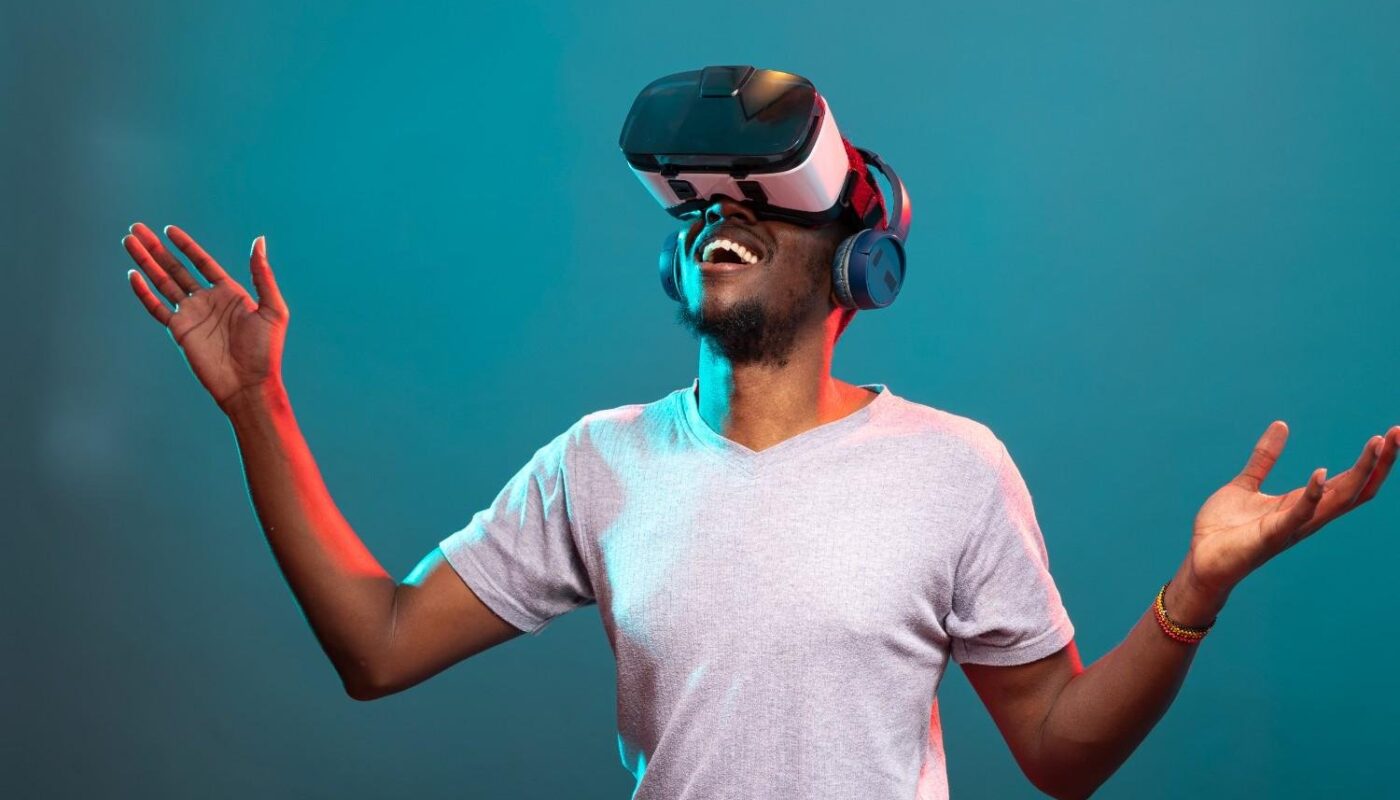Virtual Reality (VR) is no longer a futuristic concept reserved for science fiction. Today, it is one of the most transformative technologies reshaping industries like gaming, healthcare, education, real estate, and corporate training. Behind every immersive VR experience are virtual reality developers who design, build, and optimize the platforms, applications, and systems that make digital worlds come alive.
The United States, home to some of the world’s most innovative tech companies, has become the leading destination for VR development. With the rising demand for immersive technologies, American tech companies are actively hiring VR developers and often provide sponsorship programs to bring skilled professionals from around the globe.
This in-depth article explores the opportunities, responsibilities, visa sponsorships, salaries, and future of virtual reality developer positions in US tech companies.
The Expanding Role of Virtual Reality Developers
VR developers are more than programmers; they are creators of experiences. They combine technical skills with creativity to produce realistic simulations and immersive digital environments.
Core Responsibilities of VR Developers:
- Designing VR applications for gaming, training, education, and enterprise use.
- Writing clean, efficient code for platforms such as Unity and Unreal Engine.
- Developing interactive 3D models and simulations.
- Optimizing performance for VR headsets like Meta Quest, HTC Vive, and PlayStation VR.
- Collaborating with UX designers, artists, and hardware engineers.
- Testing VR experiences for usability, realism, and technical stability.
- Integrating VR with other technologies, such as artificial intelligence, haptics, and motion tracking.
Their work is critical in shaping how people interact with technology in ways that go far beyond traditional computing.
Why American Tech Companies Are Investing Heavily in VR
The US has always been a pioneer in adopting new technologies, and VR is no exception. American tech companies dominate the global VR ecosystem.
- Massive Market Size – The US leads in VR gaming, enterprise adoption, and healthcare innovation.
- Investment Power – Tech giants invest billions in research and development of immersive technologies.
- Global Reach – Applications developed in the US often become worldwide industry standards.
- Visa Sponsorship – To fill talent gaps, companies sponsor international developers.
- Future-Focused Growth – VR is expanding into new industries, ensuring long-term job stability.
Types of VR Developer Positions in US Tech Companies
Virtual reality is multidisciplinary, and tech companies hire developers with different areas of expertise:
- VR Game Developers – Focus on creating immersive gaming experiences.
- Enterprise VR Developers – Build applications for training, productivity, and corporate use.
- Healthcare VR Specialists – Develop simulations for medical training and patient therapies.
- Educational VR Developers – Create interactive learning platforms for schools and universities.
- 3D Environment Artists with Coding Skills – Design immersive landscapes and integrate them into VR systems.
- Hardware Integration Engineers – Develop software that interacts with VR devices and sensors.
- UX and Interaction Designers in VR – Focus on intuitive navigation and immersive user experiences.
Each specialization plays a critical role in advancing the industry.
Sponsorship and Visa Programs for VR Developers
For international developers, working in the US often depends on sponsorship programs offered by employers. Many tech companies provide structured visa support due to the high demand for skilled talent.
Common Visa Pathways:
- H-1B Visa for Specialty Occupations
- Popular for developers and engineers.
- Requires employer sponsorship and a relevant degree.
- Valid for three years, extendable to six.
- O-1 Visa for Extraordinary Ability
- Suitable for VR developers with significant achievements, awards, or recognition.
- L-1 Visa for Intra-Company Transfers
- Ideal for developers working at international firms with US branches.
- Employment-Based Green Cards (EB-2, EB-3)
- Long-term residency pathway supported by many tech companies for valuable employees.
Visa sponsorship makes the US especially attractive to international VR developers seeking career stability.
Essential Skills for VR Developers
To thrive in US tech companies, VR developers need a blend of technical expertise, creativity, and problem-solving skills.
Technical Skills:
- Programming Languages – C#, C++, Python, and JavaScript.
- Game Engines – Unity and Unreal Engine expertise is critical.
- 3D Modeling Tools – Proficiency with Blender, Maya, or 3ds Max.
- VR SDKs and APIs – Knowledge of Oculus SDK, SteamVR, ARKit, and OpenXR.
- Performance Optimization – Ensuring VR experiences run smoothly without motion sickness.
- Cross-Platform Development – Building apps compatible with multiple headsets and systems.
Soft Skills:
- Creativity – Crafting unique, engaging experiences.
- Collaboration – Working with cross-functional teams.
- Problem-Solving – Addressing complex technical challenges.
- Adaptability – Keeping up with rapid technological changes.
Salary Expectations for VR Developers in the US
Salaries for VR developers reflect both the high demand and the specialized skill set required.
- Entry-Level VR Developers – $70,000 to $90,000 annually.
- Mid-Level Developers – $95,000 to $120,000 annually.
- Senior VR Developers – $125,000 to $150,000 annually.
- Lead Developers or Managers – $155,000 to $180,000 annually.
- Specialists (Healthcare, Enterprise VR) – Can exceed $190,000 depending on expertise.
Compensation often includes benefits such as healthcare, stock options, and relocation support.
Top American Tech Companies Hiring VR Developers with Sponsorship
Several major US companies are leading the charge in VR and frequently hire international talent:
- Meta (formerly Facebook) – Building the metaverse through Oculus and Horizon Worlds.
- Microsoft – Innovating with mixed reality through HoloLens and enterprise VR solutions.
- Google – Focused on immersive education and enterprise VR projects.
- Apple – Investing heavily in AR/VR hardware and applications.
- Unity Technologies – Providing development tools for VR creators.
- Epic Games – Leading with Unreal Engine for both gaming and enterprise VR.
- NVIDIA – Driving graphics performance and VR hardware compatibility.
These companies have a history of sponsoring international developers, making them prime targets for applications.
Career Growth Opportunities for VR Developers
A career as a VR developer offers multiple growth paths within tech companies.
- Junior VR Developer – Focus on coding under senior guidance.
- VR Developer – Independent responsibility for projects.
- Senior Developer – Leading teams and advanced projects.
- Technical Lead or VR Architect – Designing overall system architecture.
- Product Manager for VR – Bridging development with business strategy.
- Director of Immersive Technology – Executive-level oversight of VR initiatives.
This career ladder ensures long-term sustainability for ambitious professionals.
Lifestyle Benefits of Working in US Tech Companies
For international VR developers, employment in the US comes with a range of professional and personal advantages.
- High Standard of Living – Competitive salaries ensure financial stability.
- Innovation Access – Work with cutting-edge VR technology.
- Global Recognition – US experience boosts international career prospects.
- Diverse Workplaces – Collaboration with talent from around the world.
- Professional Development – Companies sponsor training, certifications, and conferences.
Challenges International VR Developers May Face
While the opportunities are abundant, challenges should not be overlooked:
- Visa Limitations – H-1B quotas create uncertainty.
- Intense Competition – Top US companies receive thousands of applications.
- Cultural Adjustment – Relocating requires adapting to new norms.
- High Expectations – US tech firms demand performance and innovation under tight deadlines.
Preparing for these challenges is crucial for success.
The Future of Virtual Reality Development in the US
The VR industry in the United States is evolving rapidly. New technologies and trends will define future opportunities for developers.
Key Future Trends:
- Metaverse Expansion – Virtual environments for social interaction, commerce, and work.
- VR in Healthcare – Medical training simulations and therapeutic treatments.
- Educational VR – Interactive classrooms and distance learning.
- Enterprise Solutions – Corporate training and productivity platforms.
- AI Integration – Smarter, more responsive virtual environments.
- Cross-Reality Platforms – Blending VR, AR, and MR for hybrid experiences.
These trends ensure long-term demand for VR developers worldwide, with the US leading the charge.
How to Secure a VR Developer Role with Sponsorship
International candidates must adopt a strategic approach to land roles in American tech companies.
- Build a Strong Portfolio – Showcase VR projects and applications.
- Gain Relevant Certifications – Unity Certified Developer, Unreal Engine Specialist, etc.
- Target the Right Companies – Apply to firms with sponsorship histories.
- Network Professionally – Attend VR conferences and connect with recruiters.
- Prepare Visa Documents – Have degrees, certifications, and achievements ready.
- Work with Immigration Experts – Ensure visa applications are properly managed.
Persistence and preparation are the keys to unlocking opportunities in the US VR industry.
Conclusion
Virtual reality is reshaping how the world interacts with technology, and the United States stands at the center of this transformation. For international professionals, virtual reality developer positions at American tech companies with sponsorship provide not only rewarding careers but also a pathway to global recognition and long-term success.
With competitive salaries, cutting-edge projects, and visa support programs such as H-1B and O-1 visas, the US remains the ultimate destination for VR developers seeking to make an impact.
For those with creativity, technical skills, and ambition, joining a US tech company as a VR developer is more than a job—it is an opportunity to help shape the future of human experience in digital worlds.









